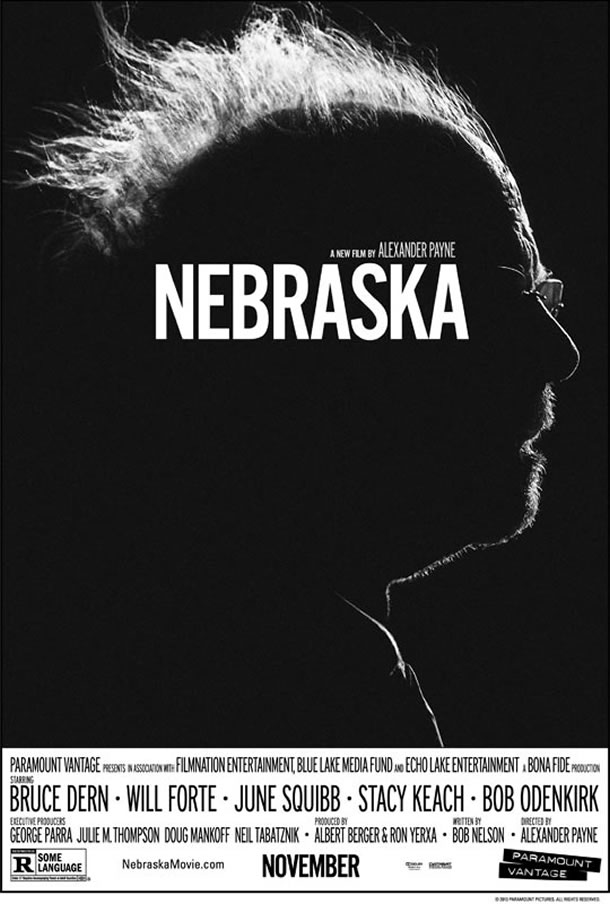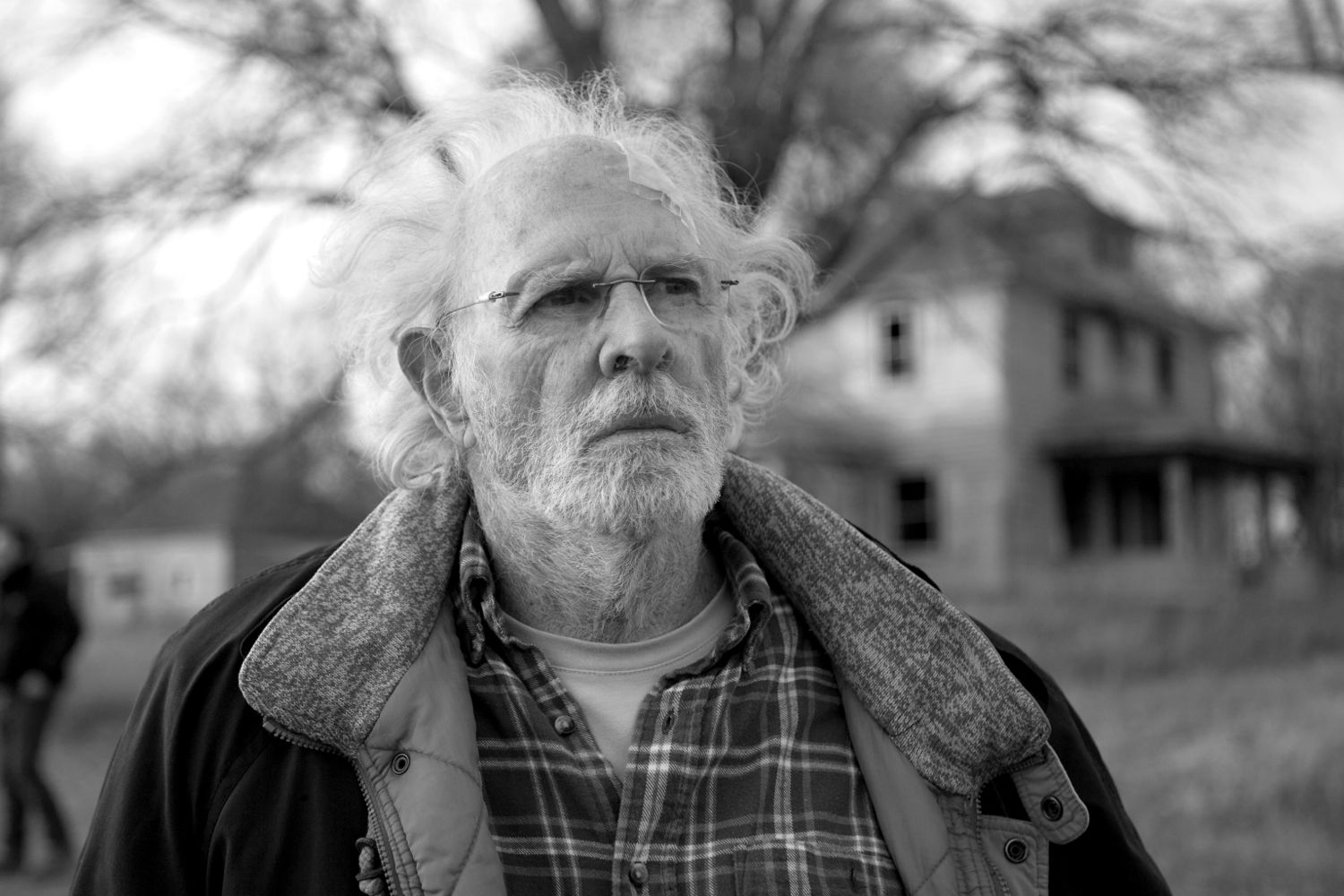I must say I embarked on a viewing of this film with some trepidation. I’ve always thought of Alexander Payne’s films as “watchable” — and if that sounds like damning them with faint praise, well, that’s the idea. They are films with interesting premises set in interesting places and employing interesting actors but don’t add up to much more than a couple of hours of diversion.
Noting that Nebraska was shot in black and white, I feared that Payne had at last decided to make a full-on art film, which I expected to be pretentious and dreary — but Nebraska is neither of those things. It’s a modest, well-observed, beautifully shot movie that doesn’t condescend to its quirky heartland characters and their relentlessly flat world. Instead it takes them seriously, or as seriously as they deserve to be taken, and it loves them, without judgment.
Bruce Dern’s performance sums up what’s good about the movie. Dern is so deep inside the buttoned-up character he plays that he reveals no more about himself to us than he does to the people around him. What might have been a showy caricature of old age becomes instead a moving portrait of estrangement and bewilderment. Dern creates this portrait basically by doing nothing, by reacting blankly to the revelations about his life that the film delivers.
We can read what we want to or need to into his taciturn persona but Payne never prods us into anything. We’re allowed to be amused by the simple-mindedness of some of the characters we encounter, but Payne never patronizes them.
This is the sort of odd, personal, adventuresome yet circumscribed movie that used to get made with some regularity in the 70s. It isn’t a great movie by any means, but it’s an admirable and humane movie — a great rarity on the current scene.



Pingback: Linkage | Uncouth Reflections
I went to see ‘Nebraska’ last night, and I really enjoyed it. A quirky little gem.
Agreed.